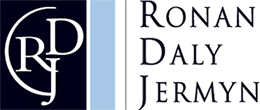Darryl Broderick: New court rules allow greater access for media to court documents

Darryl Broderick
Darryl Broderick, partner and head of litigation and dispute resolution at Ronan Daly Jermyn, welcomes new rules on media access to court files.
New Court Rules relating to the High Court, Court of Appeal and Supreme Court were introduced on 1 August 2018 which allow the media access to documents on court files where access was not previously available.
These rules came into force pursuant to the provisions of the Data Protection Act 2018.
What type of access is permitted?
An accredited member of the media will be able to review court documents that were previously off limits by the following means:
(i) inspection of court documents under the supervision of a designated person, more than likely a member of the Courts Service;
(ii) permitting a copy of court documents to be made on the undertaking that the copy would be returned once the reporter’s court report is completed; and
(iii) provision of a press release or the provision in oral or written form of other information concerning the proceedings in question.
Which members of the Media can gain access?
Access is available to a “bona fide members of the Press or broadcast media”. Proof would need to be provided in the form of a press card issued by the National Union of Journalists or an international press card or some other documentary proof of links to the bona fide press or a bona fide media organisation.
What documents are there access to?
Access can be provided to documents which are “opened” in court and those which have been “deemed to have been opened” at a hearing before the court. Documents opened in court are those which are read out in court by one of the legal advisors to the parties or by the Judge. Those that are deemed to be opened are documents which the Judge has read in his/her chambers and he/she does not require the parties to formally open in court.
Conclusion
This access to certain court documents is to be welcomed and it should assist the media in fairly and accurately reporting court hearings. It should also assist the general public by providing them with greater knowledge of the administration of justice. The public’s awareness of proceedings in the Court was already enhanced in 2014 when the media were permitted to attend and report on “in camera” family law hearings from which the media had previously been excluded.

- Darryl Broderick is partner and head of litigation and dispute resolution at Ronan Daly Jermyn. View his profile here.






